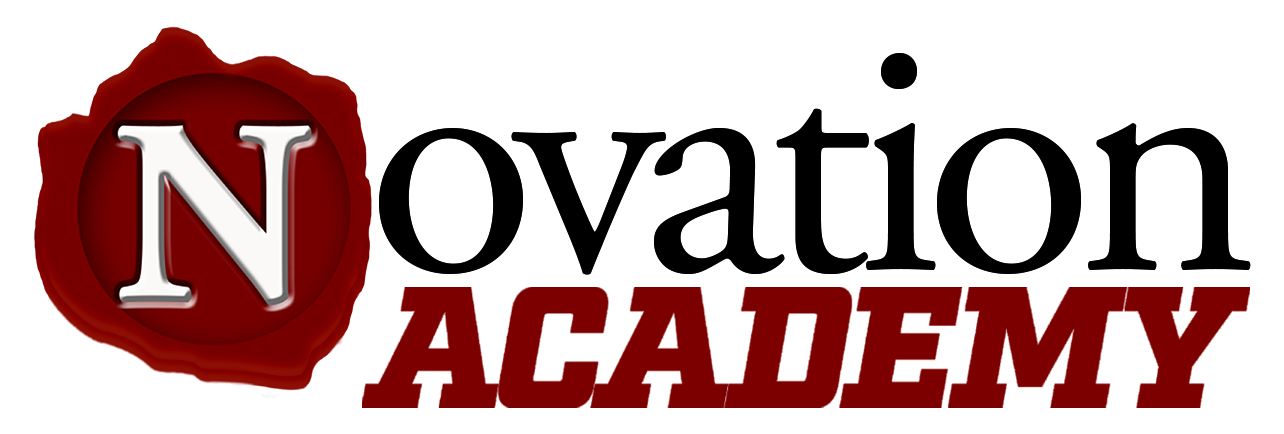
Introduction
Education serves as a cornerstone of societal progress, providing individuals with essential skills and knowledge to navigate the complexities of life. In high school education, there exists a perennial debate between prioritizing college preparation and emphasizing workforce readiness. While both avenues aim to equip students with the tools for success, they often follow divergent paths in their methodologies and outcomes. This post delves into a comparative analysis of these approaches, exploring their respective merits, challenges, and impacts on students’ future endeavors. Hope at Novation Academy does both. Your learner can take a standard path toward college, including CONCURRENT ENROLLMENT, or they can use our groundbreaking Workforce Readiness path. Read below to learn more about how these work, and to compare the two.
The Emphasis on College Preparation:
Curriculum Design:

a. Academic Rigor: College-preparatory programs typically emphasize rigorous coursework, including advanced placement (AP) classes, honors courses, and specialized tracks geared towards college admission requirements.
b. Standardized Testing: A significant aspect of college preparation involves preparing students for standardized tests like the SAT and ACT, which serve as gatekeepers for college admissions.
Holistic Development:
a. Critical Thinking Skills: College-preparatory education often emphasizes critical thinking, problem-solving, and analytical skills, preparing students for the demands of higher education.
b. Extracurricular Activities: Students are encouraged to participate in extracurricular activities such as sports, clubs, and community service, enhancing their holistic development and bolstering their college applications.
College Admissions:
a. College Counseling: High schools with a focus on college preparation typically offer robust college counseling services, guiding students through the college application process, including essay writing, financial aid, and scholarship opportunities.
b. Admissions Success: The ultimate goal of college preparation is to facilitate students’ acceptance into prestigious universities, thus validating the effectiveness of the educational approach. Novation Academy uses extensive social workers and college counselors with myraid experience to help your child develop their college plan.
The Focus on Workforce Readiness:
Vocational Training:

a. Career-Technical Education (CTE): Workforce readiness programs at Novation Academy integrate vocational training into the curriculum, providing students with hands-on experience in fields such as carpentry, automotive technology, healthcare, and information technology.
b. Industry Certifications: Students in workforce readiness programs may pursue industry certifications relevant to their chosen career paths, enhancing their employability upon graduation.
Practical Skill Development:
a. Job Readiness Skills: Workforce readiness education prioritizes the development of practical skills such as communication, teamwork, time management, and professional etiquette, which are essential for success in the workplace.
b. Internships and Apprenticeships: Work-based learning experiences, including internships and apprenticeships, allow students to gain real-world exposure to various industries, fostering a seamless transition from school to work.
Career Pathway Planning:
a. Individualized Career Guidance: Workforce readiness programs offer individualized career counseling, helping students identify their interests, strengths, and career aspirations, and aligning them with suitable career pathways.
b. Employment Opportunities: The ultimate measure of success in workforce readiness education lies in students’ ability to secure gainful employment or pursue further education in their chosen fields immediately after high school.
Comparative Analysis:
Academic vs. Practical Focus:
a. College Preparation: Emphasizes academic rigor and intellectual development, preparing students for the challenges of higher education.
b. Workforce Readiness: Prioritizes practical skill development and vocational training, equipping students for immediate entry into the workforce.
Long-Term Goals:
a. College Preparation: Focuses on long-term academic and career advancement, with an emphasis on obtaining a bachelor’s degree or higher.
b. Workforce Readiness: Targets immediate employability and career entry, with opportunities for further skill development through work experience and continuing education. Proponents of workforce readiness programs say that they train on the job, thus eliminating the need for in-depth practical job training or vocational programs, although vocational programs are available and are very helpful.
Student Diversity and Inclusivity:
a. College Preparation: Often caters to academically inclined students, potentially neglecting those with different learning styles or career aspirations.
b. Workforce Readiness: Provides pathways for students with diverse talents and interests, fostering inclusivity and addressing the needs of a broader range of learners.
Which One Is Right For Your Learner?
The truth is….EITHER ONE! The debate between prioritizing college preparation and emphasizing workforce readiness in high school education underscores the diverse needs and aspirations of students. While college preparation equips students with the academic skills and credentials necessary for higher education, workforce readiness programs offer practical training and career pathways for immediate entry into the workforce. Ultimately, the effectiveness of each approach depends on the individual goals, interests, and circumstances of students, highlighting the importance of providing diverse educational opportunities that cater to a spectrum of talents and aspirations. As educators and policymakers strive to enhance the quality and relevance of high school education, a balanced approach that integrates elements of both college preparation and workforce readiness is essential to preparing students for success in a global landscape.
Hope at Novation Academy is dedicated to helping you and your family figure those things out, which is why we offer standard tracks for students, but we also offer workforce readiness training. In this program, if your child is 17-20 years old and has been in the workforce, they can get started toward their actual diploma, just by testing out of those things that they know and do every day. Whether that’s working in an auto shop, retail store, or any other family or corporate business, there is a new path that they can take to get a High School Diploma (NOT a GED!)
Contact Novation Academy today to talk about you or your child’s options. It’s easy to assume that you’ve tried everything, but there is always a better way and Novation has some of the best counselors and most experienced mentors available to you (and we’re happy to reach out beyond our network if the situation warrants). Contact us here on the site or you can email us at [email protected].

